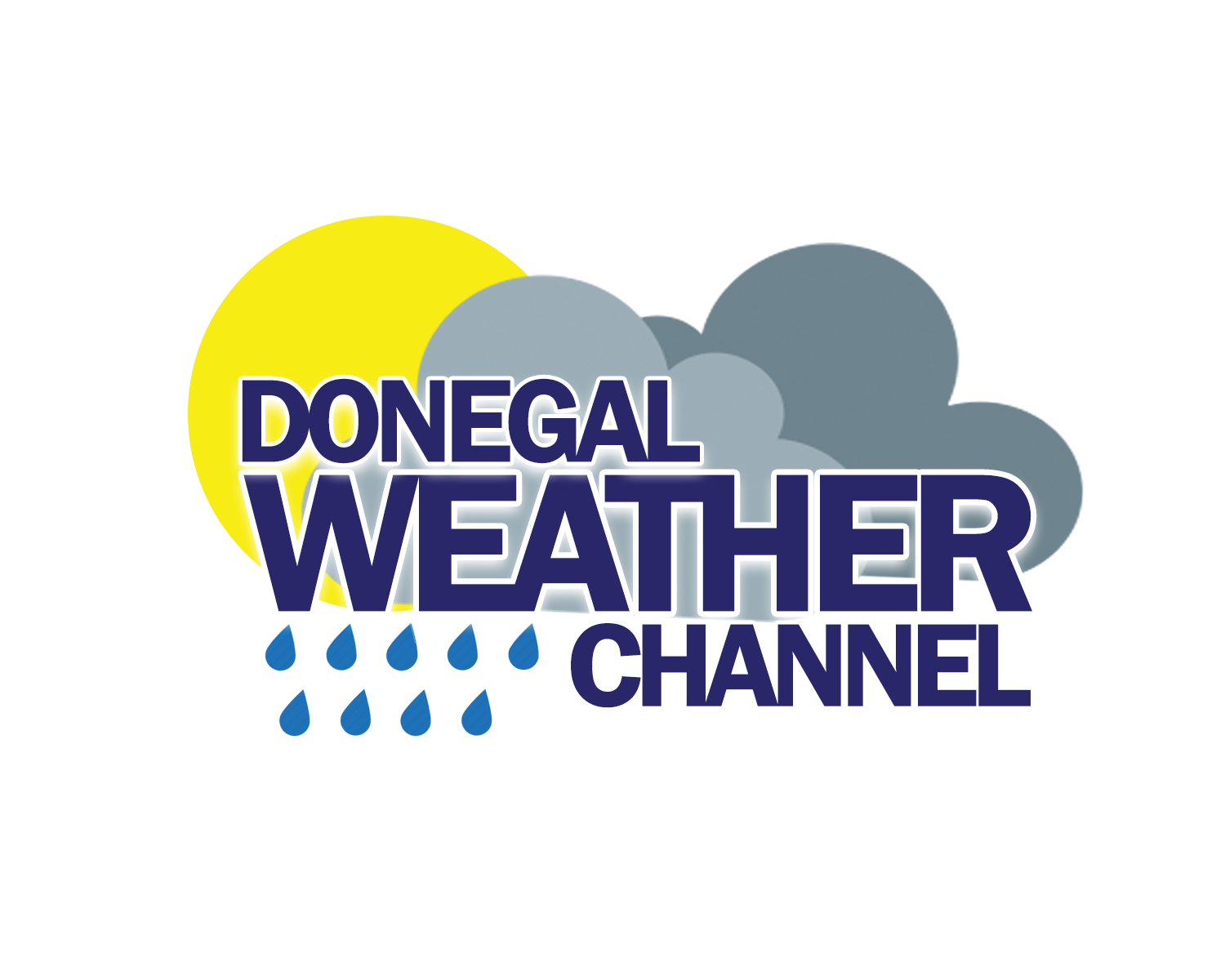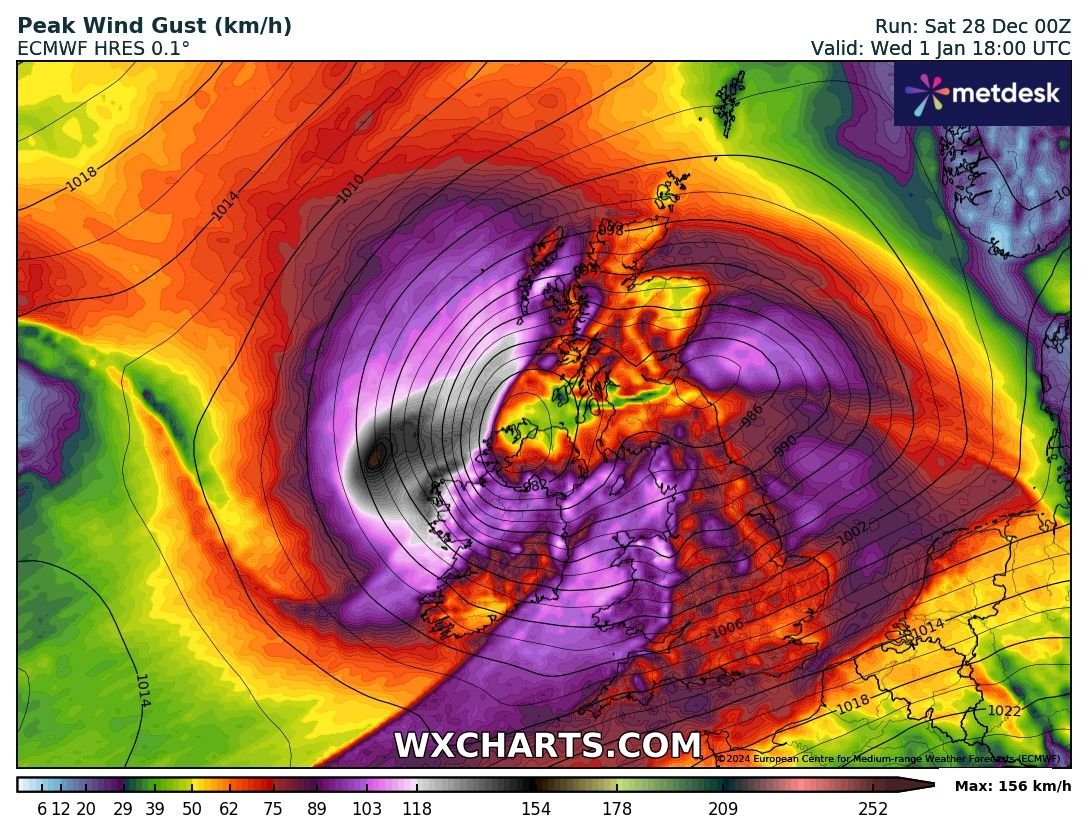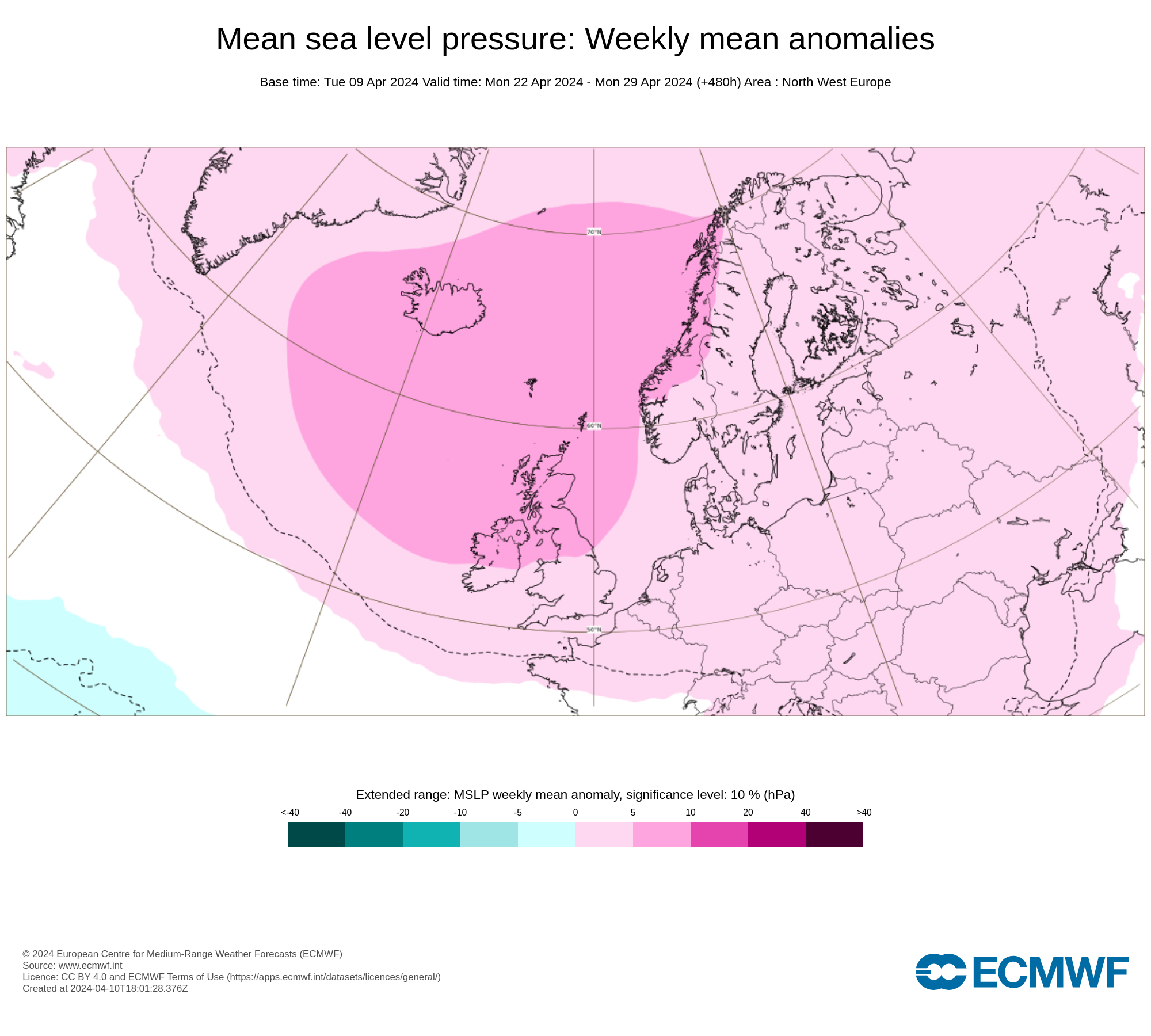The end of December to end with Arctic air across Ireland & the UK with snow and a long cold spell on the cards
A lengthy cold spells is now on the cards of Ireland and the UK
December is now looking most certain to finish of cold and possibly turning even colder as we head towards the new year. From Saturday night onwards (St. Stephens night) the weather will turn much colder and it could mark the start of a lengthy cold spell across western Europe as well as Ireland and the UK.
There are some big signals that a warning event higher up in the Stratosphere will occur now late December and over the first week of January.
During this weekend we are going to see the first of those changes particularly from Saturday (St. Stephens day) onwards as a band of rainfall moves into the northwest during the early morning pushing southwards over St. Stephens day giving heavy rainfall nationwide with the risk of spot flooding for places. There could also be a Yellow Rainfall Warning issued with totals at present around 20mm to 30mm for some areas. Attached below is the latest ECMWF model showing this rain on Saturday.
Once the rain clears the north on Saturday night it will turn much colder with cold Arctic air moving down into northern areas with showers then turning to Hail, Sleet & Snow overnight Saturday and Sunday which could give some accumulations across the north and northwest leading to icy conditions. Image attached below shows the milder air move away to the south of Ireland with colder air pushing down from the north. This is what much of the forecast models are showing now.
NEXT WEEK
Next week cold air will remain across Ireland for the whole week with areas of low pressure and polar lows looking set to sweep down across Ireland leading to some heavy snowfalls for places leading to hazardous driving conditions. Another concern looking at the latest models will be the risk of icy conditions especially black ice.
At present the northwest, north and east could see some moderate accumulations of snowfall at times next week. Some significant falls could occur also. At this stage a nationwide snow event cant be ruled out but its almost certain some areas from Sunday onwards will see snowfall
Blocking high to the west of Ireland and the UK with a Trough to the east drawing cold northerly airflow next week
The above image shows a very powerful ridge of high pressure out to the west of Ireland next week blocking out the normal Atlantic westerly pattern with a Trough over Ireland, the UK and west Europe drawing down cold northerly air. The below image shows the 2 meter Temperature Anomaly across Ireland next week well below average
SUDDEN STRATOSPHERIC WARMING (SSW)
Something you will here about in the coming weeks in the forecast will be Sudden stratospheric warming and its something many will of heard before but don’t know how it effect are weather.
First of all we are now looking high likely to see a Sudden stratospheric warming event occur at the end of December and over the first week of January.
In recent years some extreme cold, winter snow events have all been connected to the surface effects of sudden stratospheric warmings, such as those in 2009-10 and ‘the beast from the east’ in 2018. You may be asking why it is called a warming then, if it lead to cold conditions?
Sudden stratospheric warming refers to what is observed in the stratosphere:- a rapid warming (up to about 50 °C in just a couple of days), between 10 km and 50 km above the earth’s surface. This is so high up that we don’t feel the ‘warming’ ourselves. However, usually a few weeks later, we can start to see knock-on effects on the jet stream, which in turn effects our weather lower down (in the troposphere).
However, the stratospheric sudden warming doesn’t happen every year, and it doesn’t always affect our weather when it does occur.
However this SSW at the end of December 2020 and early January 2021 looks like it will have a rather quick response working its way down to the troposphere in waves. Waves can only move around the Earth's atmosphere in westerly winds. Fluctuations in our weather send waves up through the atmosphere to the easterly winds in the stratosphere, where they travel no further, and instead break and reinforce the easterly winds, bringing the easterlies lower. This pattern continues until the easterlies have moved down to the troposphere - the lowest part of the atmosphere where our weather is.
So in easier terms we would see a reversal of the zonal wind drawing in colder weather over Ireland and the UK.
Attach below is the latest GFS showing the Sudden stratospheric warming
The image below shows the Polar vortex then been pulled apart with that reversal of the zonal winds to easterly flow across Ireland and the UK over the first week of January 2021.
You can find all the latest weather warnings and forecasts by downloading our app from the google play store by clicking below




















